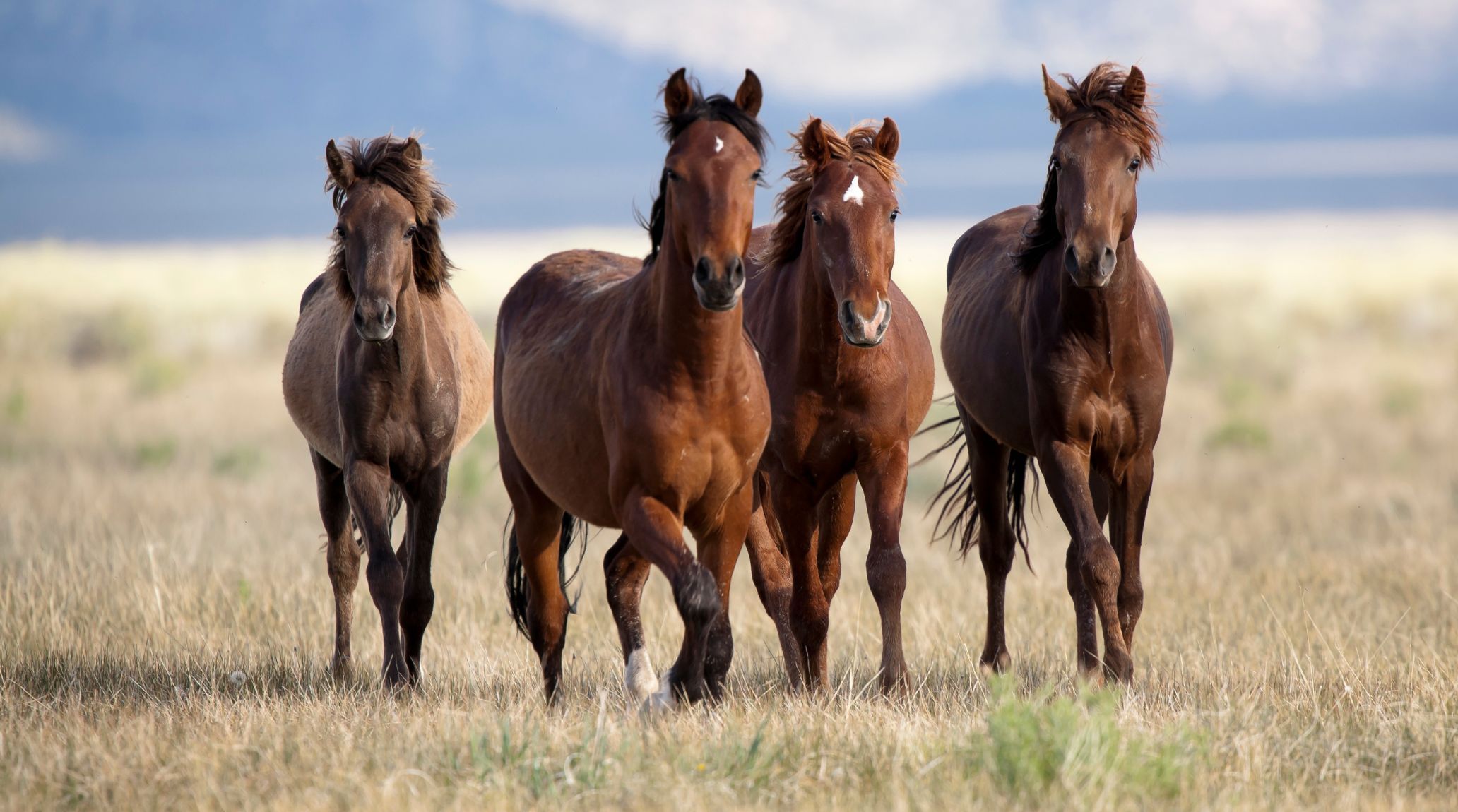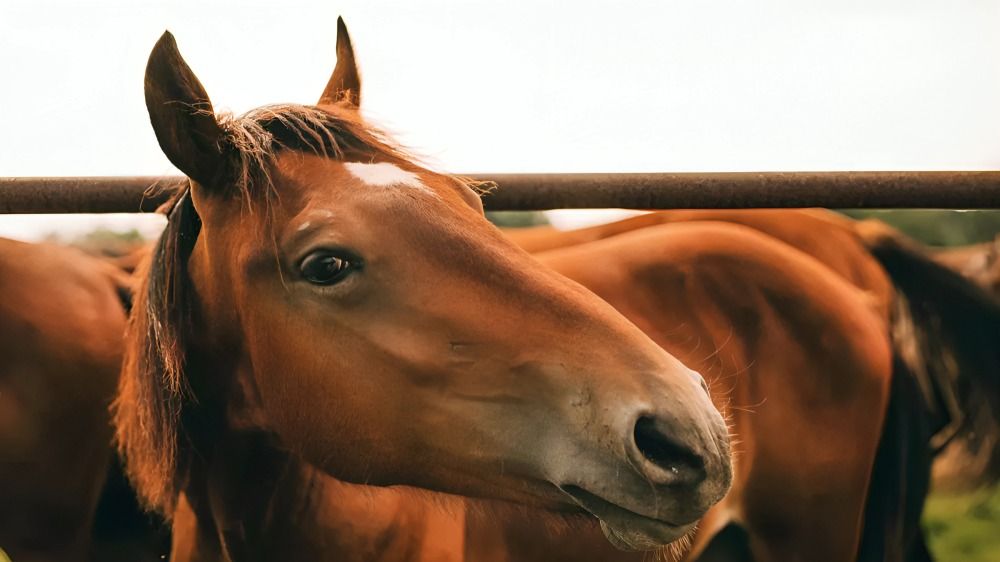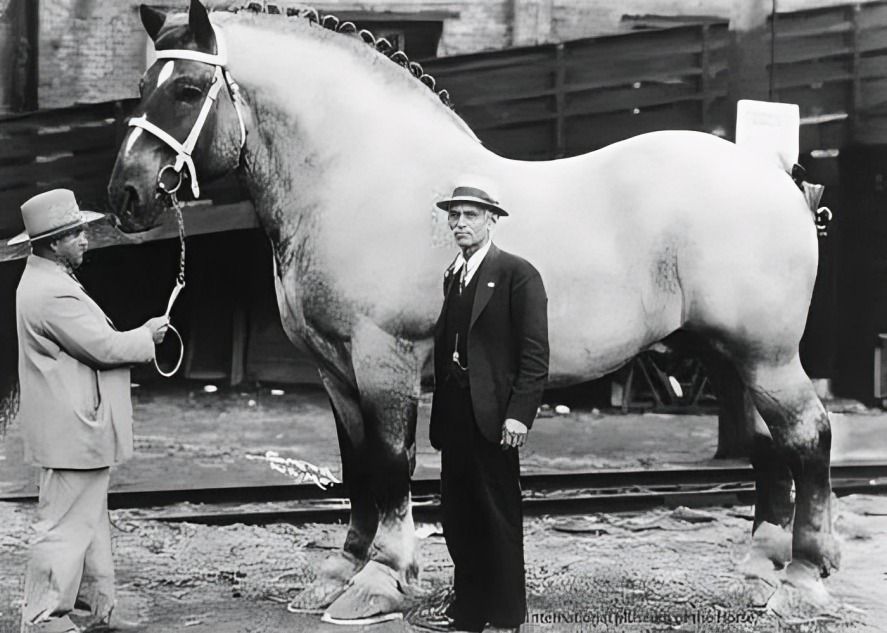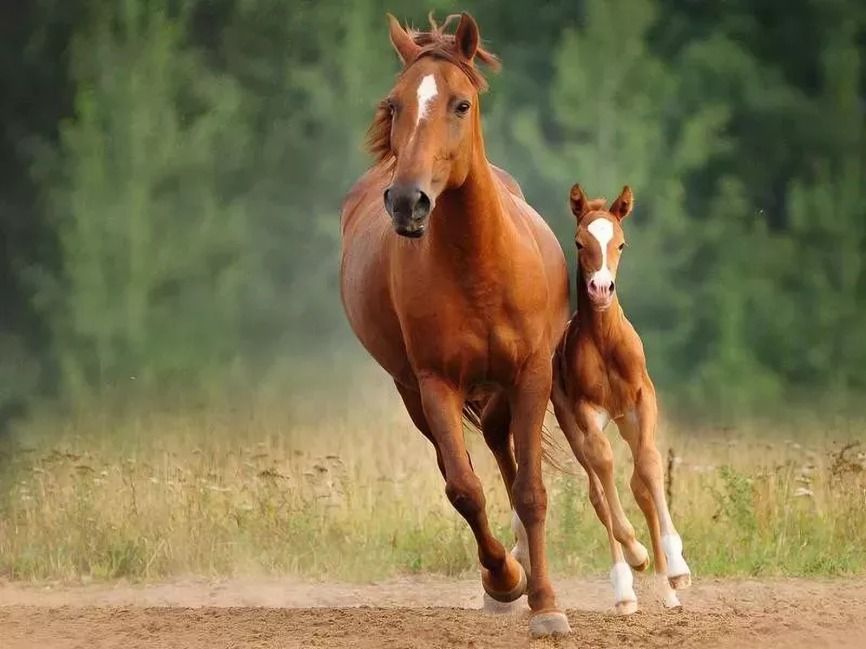
“
Horses have captivated human fascination for centuries with their grace, strength, and unique behaviors. From their powerful running abilities to their sensitive communication skills, horses embody both beauty and functionality in the animal kingdom. With so many interesting facts about horses, these majestic creatures have extraordinary adaptations and an enduring role in human history that continue to intrigue and inspire.1
1
”

Horses have the largest eyes of any land mammal, providing them with a wide field of vision. This ability helps them spot predators from a distance, enhancing their chances of survival in the wild.
Horses can sleep both lying down and standing up thanks to their "stay apparatus." This mechanism allows them to lock their legs in place, helping them rest without falling over and ensuring they stay alert to potential dangers. 1
Horses produce approximately 10 gallons of saliva per day, which aids in digestion and keeps their mouth moist. Saliva production increases when they chew, helping to break down their food more effectively. 2
The fastest recorded sprinting speed of a horse is 55 mph, making them one of the fastest land animals. Thoroughbred racehorses are particularly known for their incredible speed and agility in races. 3
Horses can run shortly after birth, with foals usually able to stand and walk within hours. This ability is crucial for their survival in the wild, allowing them to keep up with their mothers and escape predators. 4

The tallest and heaviest horse ever recorded was a Shire gelding initially named Sampson, later renamed Mammoth. This remarkable horse set records for size, demonstrating the impressive scale achievable within the Shire breed.
A horse’s hoof is made from the same protein that comprises human hair and nails, making the hoof wall strong and durable. Proper hoof care is essential for a horse's health, ensuring they can move comfortably and avoid injuries. 5
Horses are unable to breathe through their mouths. Instead, they rely solely on their noses for breathing, as their anatomy and physiology are adapted to facilitate respiration through their nasal passages, which are designed for this purpose.6
Horses have 10 different muscles in their ears, allowing them to move their ears in various directions. Ear movement helps them communicate, express emotions, and enhance their hearing capabilities.7
Horses' sense of touch is very sensitive, with nerve endings that detect even the slightest pressure. This sensitivity helps them respond to their environment and communicate with other horses and humans. 8
Horses come in a wide variety of coat colors and patterns, including bay, black, chestnut, and gray. Unique patterns like pinto and appaloosa add to their diversity and are often used to identify and categorize different breeds. 9
Horses have been domesticated for over 5,000 years used for transportation, work, and companionship. Their relationship with humans is deeply rooted in history, reflecting a long-standing bond. 10

Horses have an excellent sense of hearing, capable of rotating their ears 180 degrees to detect sounds. This ability helps them stay alert to their surroundings and communicate with other horses.
A horse's heart weighs about 9-10 pounds, pumping blood efficiently throughout their body. This powerful organ is a key component of their stamina and strength, enabling them to perform various physical activities. 11
Horses have excellent night vision, with their large eyes containing a high number of rod cells. Vision allows them to see well in low-light conditions, helping them navigate and stay safe after dark. 12
The gestation period for horses, also known as pregnancy, lasts approximately 11 months. This period can vary slightly depending on the individual mare, with careful monitoring needed to ensure the health of both the mare and foal. 13
Horses can drink up to 10 gallons of water a day, making adequate hydration crucial for their health. Dehydration can lead to serious health issues in horses, emphasizing the need for constant access to fresh water. 14
Unlike humans, their teeth continuously grow throughout their lives. Regular dental care is essential, and Neglecting equine dental health can lead to various problems.15

Horses have been used in therapy programs for people with disabilities, with equine-assisted therapy proving beneficial for physical and mental health. The bond between horses and humans can be incredibly healing, offering comfort and support.
Horses have been used in therapy programs for people with disabilities, with equine-assisted therapy proving beneficial for physical and mental health. The bond between horses and humans can be incredibly healing, offering comfort and support. 16


